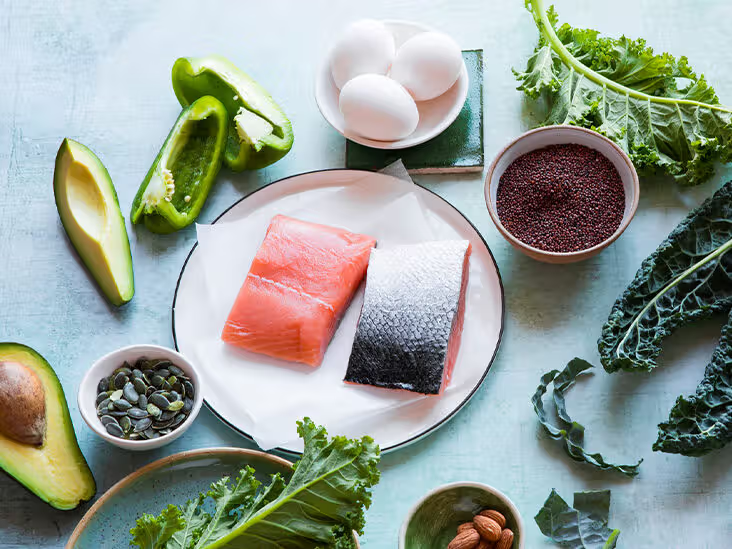Introduction
In recent years, the anti-inflammatory diet has gained recognition as a powerful approach to weight loss and overall health improvement. This dietary pattern emphasizes whole, unprocessed foods that help reduce inflammation in the body, which can often be a significant barrier to effective weight management. At Skin and Shape Clinic, Dr. Anju Methil is dedicated to guiding individuals on their journey towards a healthier lifestyle through informed dietary choices.
Table of Contents
Understanding Inflammation
What is Inflammation?
- Inflammation is a natural response of the body to injury or infection. However, when it becomes chronic, it can lead to various health issues, including obesity.
- Chronic inflammation disrupts metabolic processes, making it difficult for the body to lose weight effectively.
Impact of Chronic Inflammation on Weight
- Chronic inflammation can lead to insulin resistance, where the body’s cells do not respond effectively to insulin. This can cause excess sugar to be stored as fat rather than used for energy.
- Reducing inflammation through diet can enhance metabolic function and facilitate weight loss.
The Anti-Inflammatory Diet
Definition and Principles An anti-inflammatory diet focuses on consuming foods that are known to combat inflammation while promoting overall health. This dietary approach includes:
- Whole, unprocessed foods: Prioritizing nutrient-dense options.
- Healthy fats: Emphasizing sources like olive oil and fatty fish.
- High-quality proteins: Including lean meats and plant-based proteins.
Key Components of an Anti-Inflammatory Diet
| Food Group | Foods to Include | Foods to Avoid |
|---|---|---|
| Fruits & Vegetables | Berries, leafy greens, cruciferous vegetables | Processed fruits, sugary snacks |
| Healthy Fats | Olive oil, nuts, seeds | Trans fats, fried foods |
| Whole Grains | Brown rice, quinoa, oats | Refined grains (white bread, pastries) |
| Proteins | Fatty fish (salmon), legumes | Processed meats (sausages, hot dogs) |
| Spices & Herbs | Turmeric, ginger | Excessive salt |
Meal Planning for Weight Loss
Creating a Balanced Meal Plan
To effectively implement an anti-inflammatory diet for weight loss, consider the following guidelines:
- Focus on Whole Foods:
- Prioritize fresh fruits and vegetables that are rich in antioxidants.
- Incorporate whole grains that provide fiber and essential nutrients.
- Balance Your Plate:
- Aim for a combination of protein, healthy fats, and fiber-rich carbohydrates at each meal.
- Example meal: Grilled salmon with quinoa and a side of steamed broccoli drizzled with olive oil.
- Sample Meal Ideas:
- Breakfast: Overnight oats topped with berries and nuts.
- Lunch: Quinoa salad with mixed vegetables and chickpeas.
- Dinner: Stir-fried tofu with assorted vegetables in ginger sauce.
Meal Prep Tips
- Prepare meals in advance to ensure you have healthy options readily available.
- Use batch cooking techniques for grains and proteins to save time during the week.
Foods to Avoid
To maximize the benefits of an anti-inflammatory diet, it is crucial to limit or avoid certain foods that can promote inflammation:
- Processed Foods: High in unhealthy fats and sugars.
- Refined Carbohydrates: Such as white bread and pastries that spike blood sugar levels.
- Excessive Red Meat: Can contribute to inflammatory responses in the body.
By focusing on anti-inflammatory foods while avoiding those that cause inflammation, individuals can create a nourishing environment conducive to weight loss and overall health improvement.
Benefits Beyond Weight Loss
Adopting an anti-inflammatory diet not only aids in weight loss but also provides numerous health benefits that extend beyond the scale. Here are some key advantages of this dietary approach:
- Improved Blood Sugar Control:
- Anti-inflammatory foods often have a low glycemic index (GI), which helps maintain stable blood sugar levels. This can reduce insulin spikes and prevent fat accumulation, making it easier to manage weight.
- Enhanced Satiety and Metabolic Function:
- Foods rich in fiber and healthy fats promote a feeling of fullness, which can help prevent overeating. This leads to gradual, sustainable weight loss while preserving lean muscle mass.
- Reduced Risk of Chronic Diseases:
- Following an anti-inflammatory diet can lower the risk of developing chronic conditions such as heart disease, diabetes, and certain cancers. The antioxidants and polyphenols present in these foods help combat oxidative stress and inflammation in the body.
- Mental Well-being:
- There is growing evidence linking anti-inflammatory diets to improved mental health outcomes. Foods rich in omega-3 fatty acids, such as fatty fish and walnuts, have been shown to support cognitive function and may reduce symptoms of depression.
Getting Started
If you’re interested in embarking on your journey towards better health through Non Surgical Fat Loss and Weight Loss Treatments, consider scheduling a consultation with Dr. Anju Methil at Skin and Shape Clinic. Personalized dietary advice can help you create a tailored meal plan that aligns with your health goals.
Conclusion
In summary, adopting an anti-inflammatory diet is a powerful strategy for weight loss and overall health improvement. By focusing on nutrient-dense foods while avoiding those that promote inflammation, individuals can foster a healthier lifestyle that supports long-term well-being. With guidance from experts like Dr. Anju Methil, you can take proactive steps towards achieving your health goals through informed dietary choices.
